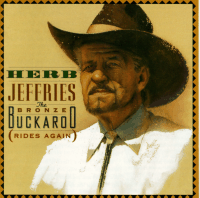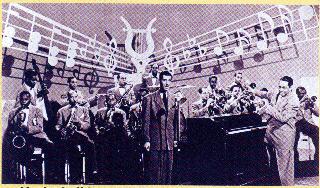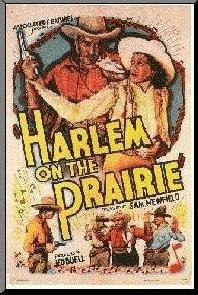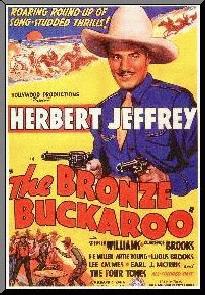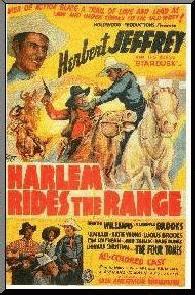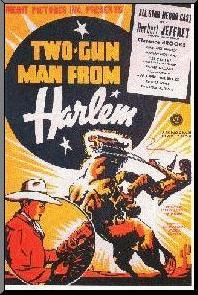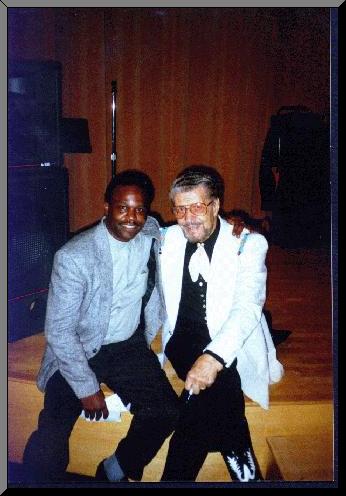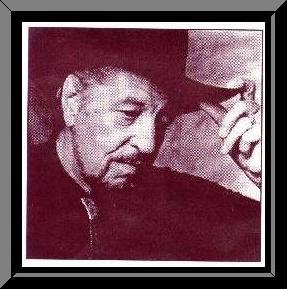 |
For the first, and only black singing cowboy ever on the silver screen, there's no such thing as riding into the sunset. In the late thirties, Herb Jeffries left the Earl "Fatha" Hines band to become the first black movie hero in such movies as "Harlem On The Prairie", "Two Gun Man From Harlem", "Harlem Rides The Range" and "The Bronze Buckaroo". In the forties he became one of the worlds most popular singers when he joined Duke Ellington and His Famous Orchestra, recording such pop and r&b hits as "You,You Darlin", " Jump For Joy", " I Don't Know What Kind Of Blues I Got", and his million selling signature song "Flamingo". During the fifties, Jeffries moved to France briefly where he established and ran successful jazz clubs. He made a triumphant return to the states, and the man who is considered one of the greatest jazz stylist of this century has never stopped entertaining. Today, Jeffries is a phenomenally vigorous 83-year-old who is as charismatic (and his smooth baritone just as strong) as when the Bronze Buckaroo first saddled up. In fact, nearly 60 years after he made movie history, he has recorded his western songs for the very first time on a Warner Western album - The Bronze Buckaroo (Rides Again), and like Jeffries himself, this debut which blends both jazz, pop and country is both "Now and Then." Players had the pleasure of spending a day with this living legend, but like the man himself the interview I (Les Wills) did with Herb Jeffries proved to be simply "Beyond Category".
|
